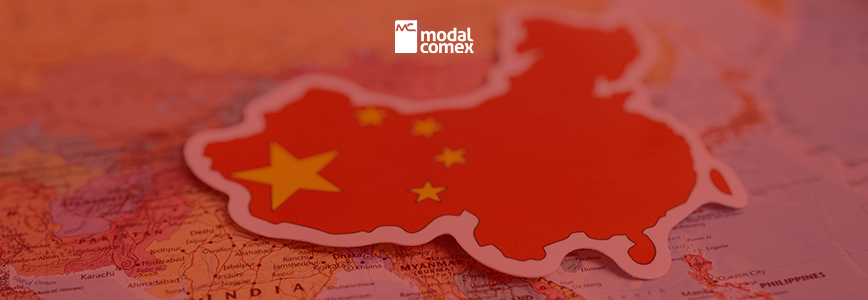Chaos in Shanghai port

Due to the significant increase in Covid-19 cases and the lockdown decree in China’s main financial center, the port of Shanghai has been experiencing massive congestion in recent days, resulting in delays in the movement of supplies.
Today on Modal’s blog, we will delve into the chaos happening on the other side of the world and how it might influence Brazil and the global economy.
What you will find in this post:
- How did this chaos arise?
- What are the global impacts?
How did this chaos arise?
With the Covid-19 outbreak in China, authorities decided to implement stringent measures to curb the spread of the virus. Shanghai, the country’s financial hub, was particularly affected. The latest government report confirmed 2,472 cases in the city this Monday (25th), while the total number of new cases nationwide was 2,680. On Sunday (24th), Shanghai recorded 39 deaths, the highest number since the beginning of the lockdown.
In the previous week, about 400 million people in 45 Chinese cities were under total or partial lockdown due to China’s “zero Covid” policy, which was particularly stringent in Shanghai and Beijing. These two cities together account for 40% of China’s GDP, approximately $7.2 trillion, according to Nomura Holdings.
In this context, Shanghai is dealing with even more restricted activities, which could lead to price increases and further penalize the global economy.
What are the global impacts?
The forecasts are not encouraging: the impact of the congestion is expected to continue until the end of the second quarter. This could extend further if normalization does not occur quickly.
Exports through Shanghai account for 30% to 50% of all goods leaving China, meaning the world could face severe difficulties in receiving products.
Maersk, the largest shipping company in the world, announced that “several ships will skip the port of Shanghai on their routes” due to insufficient space available for containers.
The global consequence will be a slowdown in import flows and the entire production chain, which may result in increased inflation.
“There is a lot of concern that exports will be affected and that there will be an inflationary impact worldwide, including in Latin America, which is a major trading partner of China,” says Alicia García-Herrero, chief economist for Asia-Pacific at investment bank Natixis. “Since the port’s capacity is not the same as in March or February, it will take some time to resolve all this. Even if the city lockdown ends tomorrow, there is a capacity backlog that will not be resolved quickly,” explains Rodrigo Zeidan, professor of Economics and Finance at NYU Shanghai.


